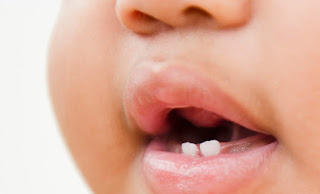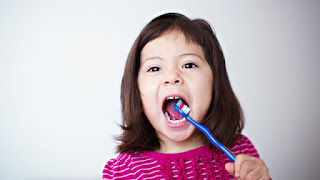Baby Teeth: When Do They Come in & Fall Out? (Part 2 of 2)

When Do Baby Teeth Fall Out Once all the baby teeth have fully come in, it is very important to keep up with twice daily brushing to keep them clean and strong. It is recommended that parents brush their kids' teeth until the age of eight. During that time, those new baby teeth will begin to wiggle and fall out. Baby teeth usually begin falling out in order of appearance. The lower center teeth go first, followed by the top center pair, and so on. This usually starts happening by age six, but some kids can start losing teeth as early as age four. Most children get excited when they feel their teeth start to wiggle (and the Tooth Fairy’s inevitable visit is also a big help), while some kids worry that losing a tooth will hurt when it falls out. If your child is worried, you can reassure him or her that they probably won't feel anything. A baby tooth typically won’t loosen until the permanent tooth below begins pushing it up to take its place. But it...





